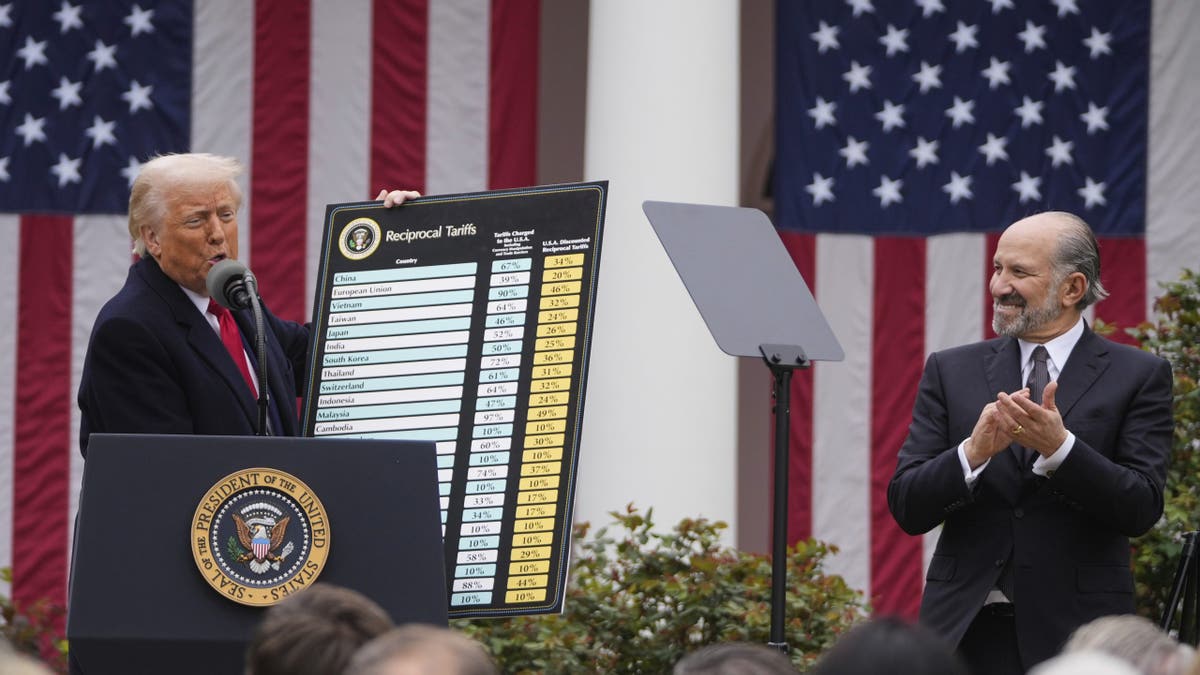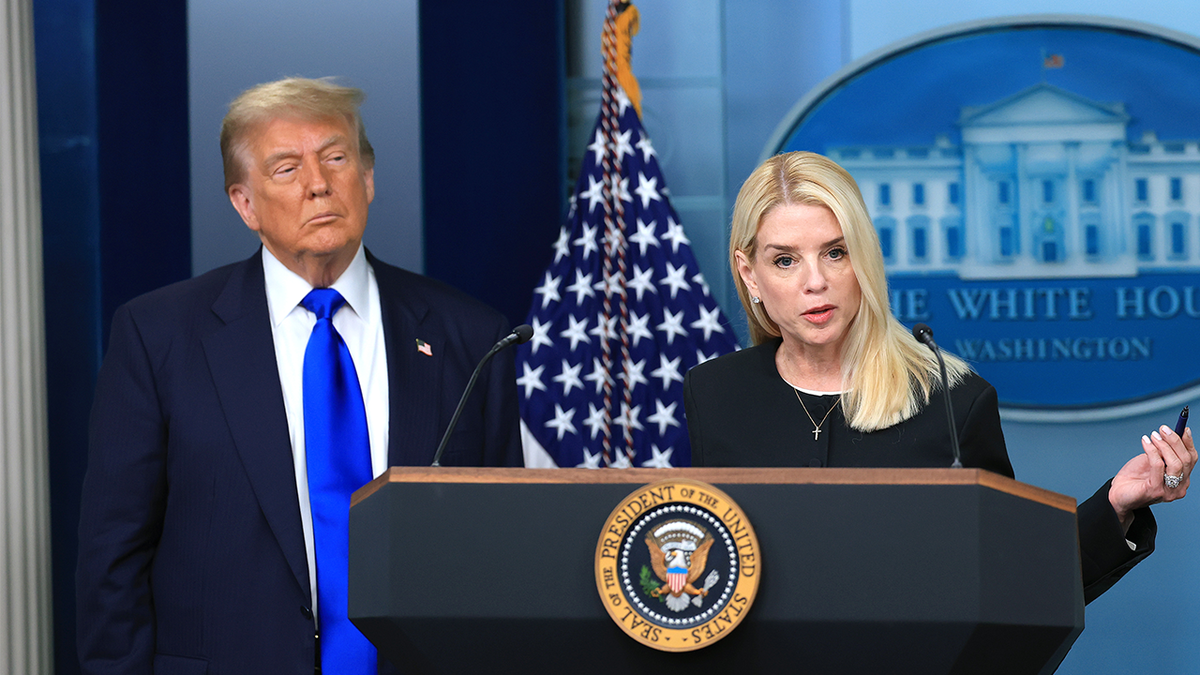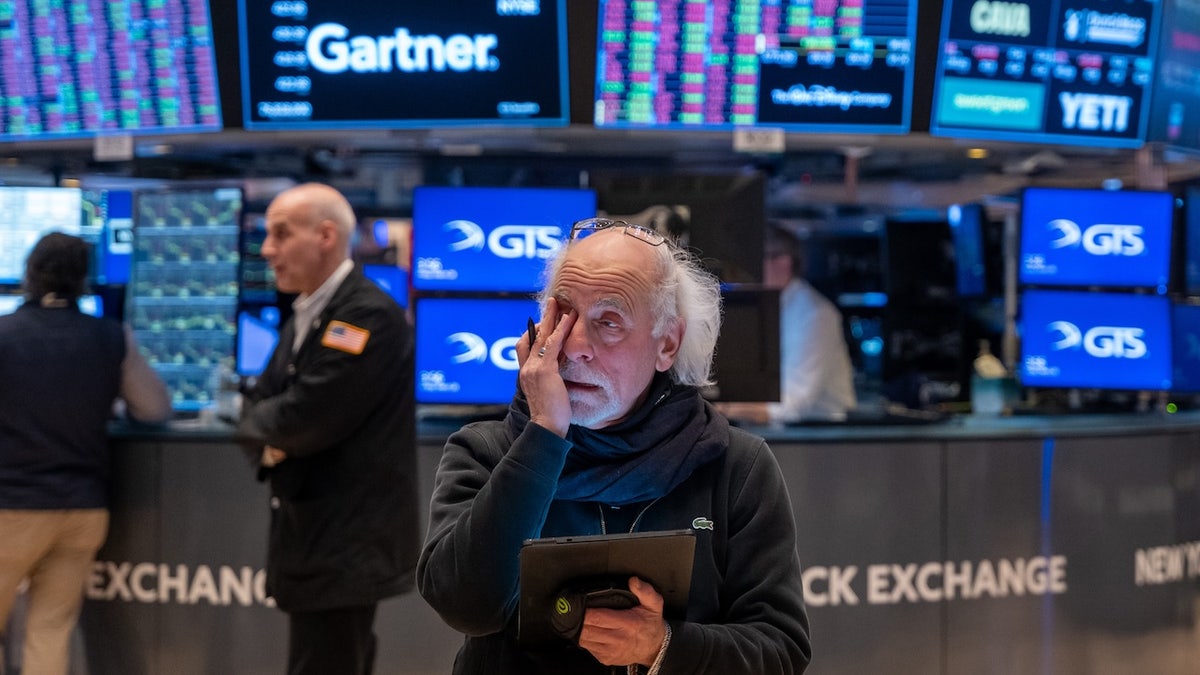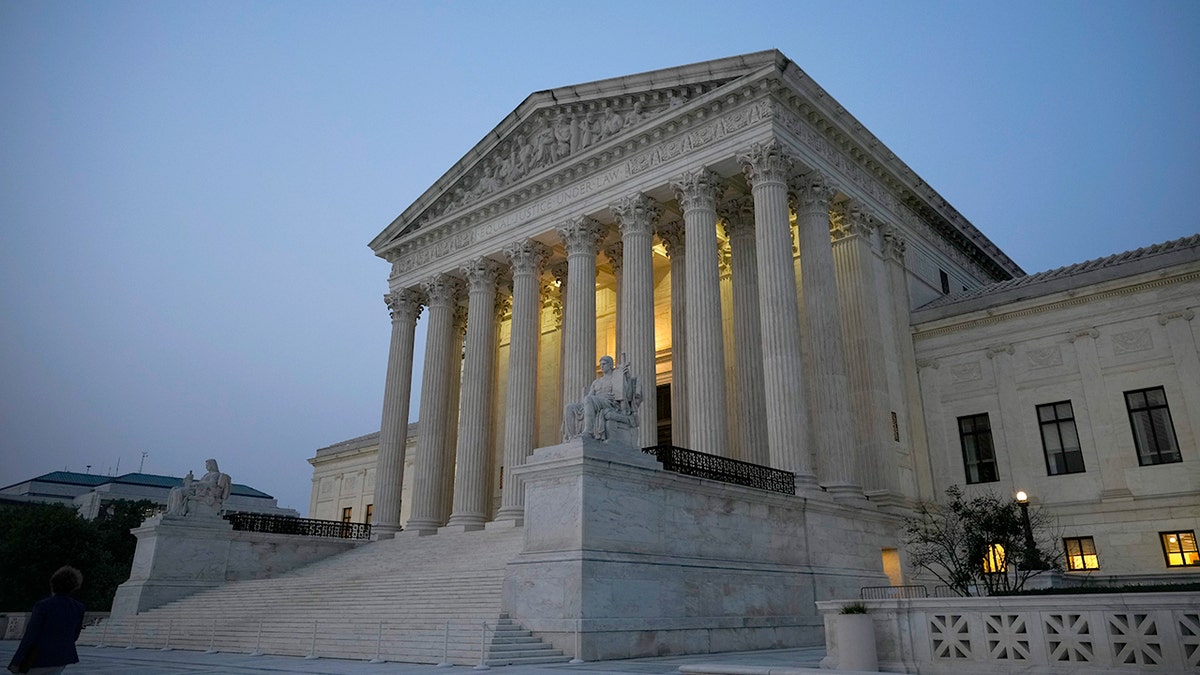Federal judges grill Trump lawyers over ‘Liberation Day’ tariffs on eve of enforcement
NEWYou can now listen to Fox News articles!
Eleven federal appellate judges weighed President Donald Trump‘s use of an emergency law to impose steep and punishing tariffs on most U.S. trading partners during nearly two hours of fast-paced oral arguments Thursday, underscoring the magnitude and urgency of the case.
At issue before the Washington-based Court of Appeals for the Federal Circuit is Trump’s attempt to use the International Emergency Economic Powers Act (IEEPA) — a 1977 emergency law — to enact the steep import fees, and impose additional tariffs on certain trading partners. Those tariffs are slated to take force Aug. 1.
Judges for the appeals court pressed administration lawyers to explain why Trump invoked IEEPA when there are other, more narrow statutes enacted by Congress to specifically deal with tariffs. These laws include certain caps on tariff amounts, they noted, as well as timeframes reviewable by Congress.
Judge Evan Wallach rattled off a list of such statutes. Compared to these, he said, IEEPA “doesn’t include the word tariffs anywhere.”
TARIFF FIGHT ESCALATES AS TRUMP APPEALS SECOND COURT LOSS

He added that when the law was passed in 1977, tariffs were a very relevant issue included in other statutes — suggesting that, had Congress included for them to be there, they would have been.
Justice Department Assistant Attorney General Brett Shumate acknowledged that the IEEPA law does not include the word “tariffs.” Still, he argued that the trade deficit between the U.S. and trading partners had “reached a tipping point,” which he said enabled the administration to use emergency powers to take action.
“It’s affecting our military readiness,” he told the court. “It’s affecting our domestic manufacturing capability.”
Shumate was also asked if the administration believes that Trump’s power under IEEPA is “unbounded,” and, if true, whether they believe the president’s actions are reviewable by the courts.
Shumate said in response he believes that the administration should answer to a congressional delegation.

Arguing for the plaintiffs, Neal Katyal told the court that Trump, in invoking IEEPA, is attempting a “breathtaking claim to power that no president has asserted in 200 years.”
“Our federal courts are powerless if the president can do whatever he wants, whenever he wants, for as long as he wants, so long as he declares an emergency,” he said.
Using the IEEPA law to enact the tariffs Trump outlined during his April 2 “Liberation Day” event would mark the first time in U.S. history that tariff powers would be enacted by a president in an instance not specifically delegated by Congress.
As the oral arguments came to a close, it was not immediately clear how judges on the panel would rule, though some suggested the possibility of partly upholding the lower court ruling that had blocked Trump’s use of IEEPA.
“But IEPPA has been rarely used, hasn’t it? It’s been over 50 years since it’s been used?” Judge Jimmie Reyna asked Shumate.
Outside the courthouse, Oregon Attorney General Dan Rayfield — who helped represent the 12 states suing over the plan — told Fox News Digital he expects the appeals court decision to come in weeks or months, not days, an acknowledgment that the Aug. 1 enforcement date will likely be well in the rearview when a ruling lands.
Still, he said, “we’re optimistic based on the courtroom today that we will be successful,” or “partially successful,” he said.
“When the federal government comes in and says that [the court] has absolutely no right to review what the president does under IEEPA, you actually heard laughter in the room,” he said, describing it as a “flop” that may sit poorly with the judges.
TRUMP TARIFF PLAN FACES UNCERTAIN FUTURE AS COURT BATTLES INTENSIFY
On April 2, Trump announced a 10% baseline tariff on all countries, along with higher, reciprocal tariffs targeting select nations — including China. He said the measures would address trade imbalances, reduce deficits with key trading partners and boost domestic manufacturing and production.
However, whether emergency tariffs are the appropriate vehicle to accomplish this is an open question and one central to Thursday’s oral arguments before the appeals court.
Plaintiffs inV.O.S. Selections Inc. v. Trump argued Thursday that the looming tariffs have already introduced confusion and volatility into markets, threatening the bottom lines of small U.S. businesses and making it extremely difficult for owners to operate under shifting guidance that seems to change on a whim.
Others argue that the tariffs are more a negotiating tool designed to bring trading partners to the table to negotiate new deals.
JUDGES V TRUMP: HERE ARE THE KEY COURT BATTLES HALTING THE WHITE HOUSE AGENDA

Despite trade adviser Peter Navarro’s pledge to strike “90 trade agreements in 90 days,” and Trump’s assertion to Time magazine that they had struck “over 200 deals” this year, the Trump administration has in fact inked just eight such agreements over the last 120 days.
The agreements announced by the U.S. include deals with the European Union’s 27-member bloc, the United Kingdom, South Korea, Japan and others.
The U.S. and China, which threatened each other with escalating reciprocal tariffs that climbed as high as 145%, agreed at a meeting in Geneva in May to lower tariffs through at least mid-August. Talks for a longer-term deal are ongoing.
Small businesses in the U.S. have been hit with months of “complete uncertainty,” Jeffrey Schwab, senior counsel and director of litigation of the Liberty Justice Center, one of the groups representing small businesses in court, said in an interview Wednesday.
“That’s largely due to the fact that the president asserts the power to impose tariffs on any country he wants, for any reason — and at any rate he wants, at any time he wants,” Schwab said.
“So there’s no certainty on what the rate is going to be from one week to the next, and that’s very difficult to do business with, when things are constantly changing.”
Judges on a three-judge panel for the U.S. Court of International Trade voted unanimously to block Trump’s tariffs from taking force earlier this year, ruling that, as commander in chief, Trump does not have “unbounded authority” to impose tariffs under the emergency law.
That ruling was later paused by the appeals court in Washington, D.C., which agreed to consider the administration’s request for relief.
Ahead of Thursday’s oral arguments, U.S. Attorney General Pam Bondi vowed they would continue to defend the president’s trade agenda in court.
“This morning, [Justice Department] attorneys are going to court to defend President Trump’s tariffs — which are transforming the global economy, protecting our national security, and addressing the consequences of our exploding trade deficit,” she said. “We will continue to defend the president.”

Some Trump supporters have argued the tariffs are merely a negotiating tactic to get foreign governments to the table — though the administration has repeatedly vowed to use “all tools” at their disposal to advance Trump’s protectionist policies.
The administration argued in a court filing that the IEEPA is the law that Congress passed in 1977 to allow the president to respond to “unusual and extraordinary threats” and in cases where a national emergency has already been declared.
However, plaintiffs argue that Trump’s use of IEEPA to address the trade deficit is unlawful, pointing out that, by the administration’s own admission, the deficit has persisted for nearly 50 years, undermining the claim of an “unusual and extraordinary” emergency.
The Court of Appeals for the Federal Circuit will likely move on the case quickly, with a decision expected in August. No matter the outcome, both sides have vowed to take the fight to the Supreme Court, if necessary.
In the interim, economists noted there could be real harm the longer the court process takes.
CLICK HERE TO GET THE FOX NEWS APP
Schwab, the lawyer helping represent plaintiffs in court Thursday, said small business owners could see “potentially irreparable harm” as a result of court inaction. Already, he said Wednesday, his clients are reporting real harm.
“Some of the harm has already taken place,” Schwab said in an earlier interview. “And the longer it goes on, the worse it is.”
